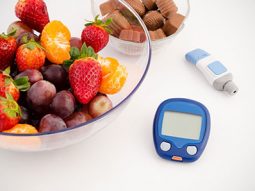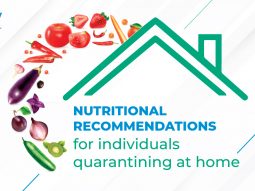GUIDELINES FOR HIGH BLOOD SUGAR LEVELS
If you have a high blood sugar level, you may have diabetes mellitus, which can cause many complications. Fortunately, complications can be prevented if you learn to take good care of yourself and see your doctor regularly.
- Control your diet: avoid eating excessive carbohydrates such as rice, noodles, bread, sugar and sweets.
- Follow your prescribed diet faithfully.
- Use artificial sweeteners and diabetic foods instead of sugar and sweetened foods.
- Increase fibre in your diet by eating more vegetables and fruits.
- Lose weight if you are overweight or obese.
- Exercise regularly.
- Learn to test your blood for sugar level (urine less informative).
- Learn the signs and symptoms of low blood sugar such as sweating, feeling dizzy or lightheaded and fainting.
- Carry sweet candies with you for emergency use (fainting spells).
- Wear the correct size shoes to avoid pressure sores.
- See your doctor if you have any wounds that don’t heal.
- Take prescribed medications regularly.
GUIDELINES FOR HIGH BLOOD CHOLESTEROL LEVELS
A high blood cholesterol level contributes to the development of atherosclerosis, a type of hardening of the arteries which interferes with the free flow of blood. This condition is the underlying cause of most heart attacks and strokes. There are several suggestions you should follow:
- Changes in your daily eating habits are recommended.
- Control your intake of cholesterol-rich foods such as egg yolk, meat, butter, cream, shrimp and organ meats.
- Cook with vegetable oil, such as palm oil and coconut oil, instead of saturated animal fat.
- Use cooking methods that help to reduce fat in foods, such as baking, boiling, roasting and stewing; avoid frying food.
- Increase fibre in your diet by eating more vegetables and fruits.
- See your doctor regularly.
GUIDELINES FOR HIGH BLOOD TRIGLYCERIDE LEVELS

A high blood triglyceride level can cause as many problems as high blood cholesterol and should be controlled to prevent further complications.
There are several suggestions you should follow:
- See your doctor regularly.
- Lose weight if you are overweight or obese.
- Changes in your daily eating habits are recommended.
- Avoid eating excessive carbohydrates in the form of starch and sugar as the body converts these foods to triglycerides. This food group includes rice, bread, noodles, sugar and sweets.
- Avoid fatty foods.
- Cook with vegetable oil, such as palm oil and coconut oil, instead of saturated animal fat.
- Avoid alcoholic beverages and cigarettes.
GUIDELINE FOR HYPERTENSION

High blood pressure is a serious health problem and can increase the risk of developing other diseases. Although high blood pressure cannot be cured, it can be controlled.
Keeping it under control or within a safe range will more than likely prevent the complications of high blood pressure, such as stroke, heart attack or heart and kidney failure.
To reduce your risk factor:
- Reduce your consumption of salt – check labels on all your foods to see how much salt they contain.
- Reduce your consumption of fatty foods and food which is rich in cholesterol, such as egg yolk, butter, organ meats and coconut milk.
- Lose weight if you are overweight or obese.
- Exercise regularly.
- Avoid cigarette smoke.
- Avoid stress.
GUIDELINE FOR HIGH BLOOD URIC ACID
High levels of uric acid in your blood can cause diseases such as kidney stones, kidney failure and gout.
To reduce your risk factor:
- Drink plenty of water so that uric acid is flushed out through your urine.
- Avoid eating wings, organ meats, asparagus and cucumbers.
- Avoid alcoholic beverages.
- Lose weight if you are overweight or obese.
GUIDELINE FOR POSITIVE HEPATITIS B ANTIGEN
If you test positive for the Hepatitis B antigen, that means you are carrying the Hepatitis B virus. The incubation period is anywhere from six weeks to six months before any signs or symptoms will occur.
About 10 per cent to 15 per cent of the population have the positive antigen but neither has the disease nor antibodies against the disease. These people are called ‘healthy carriers’. It means they can spread the disease to the others but at the same time experience further problems themselves, such as chronic hepatitis.
If you test positive for the Hepatitis B antigen, you should see your doctor and:
- Undergo further investigation to determine the infectiousness of the disease.
- Undergo further investigation to determine your level of liver function; you should also periodically check your liver function as long as the antigen is present.
- Take good care of yourself and maintain good health.
- Avoid alcoholic beverages and anything that can cause damage to your liver.
- Do not over-work, do not over exercise and get enough rest.
- Maintain good personal hygiene.
- Inform your doctor and your dentist of your blood results whenever you receive treatment.
- Do not donate any part of your blood or any of your organs.
- Get your immediate family members checked to see if they have the antibodies against (and are therefore immune to) the disease. Those that do not have both the antigen and antibody must receive a vaccination against the disease.

 Vi
Vi 












